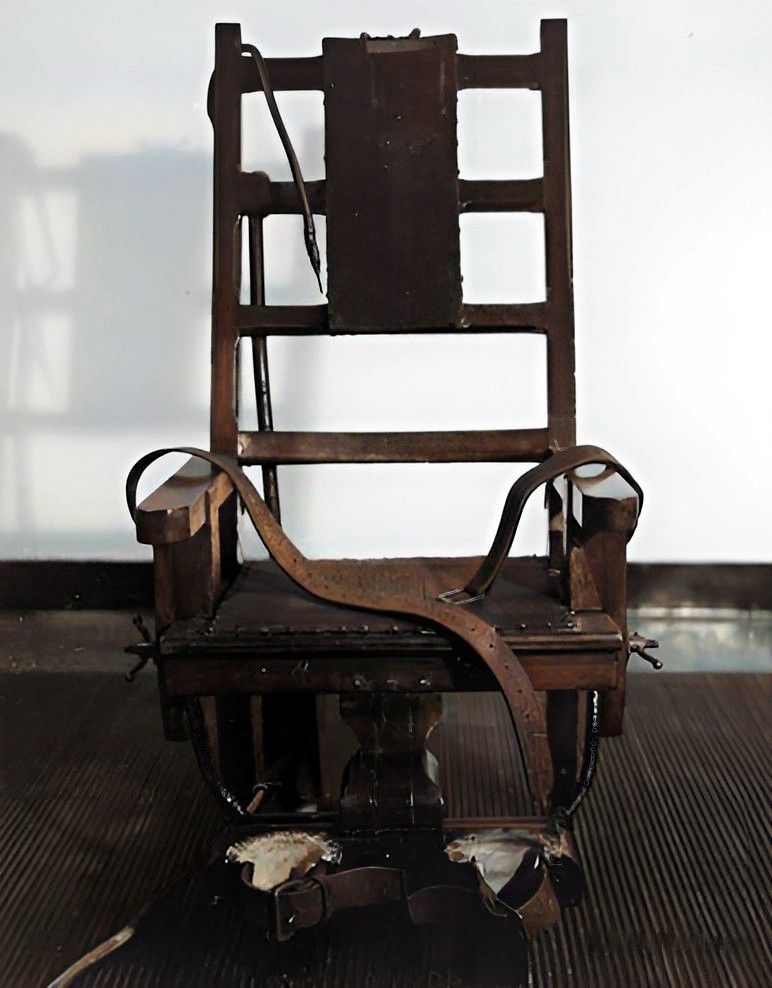With all the nice things I have to say about her, you might think that Lillian's life is pretty peachy. Not so. She believes that there have been numerous violations of the Geneva Convention. Among other things, she claims:
The scriptures are laid before thee, yea, and all things denote there is a God;
yea, even the earth, and all things that are upon the face of it, yea, and its motion,
yea, and also all the planets which move in their regular form
do witness that there is a Supreme Creator.
—Alma 30:44
Tuesday, February 28, 2012
Monday, February 27, 2012
Just Right
Posted by
Matt
at
1:35 PM
I've previously mentioned that Lillian is, in certain contexts, too big [1] and too little.[2] So, in the spirit of Goldilocks, for this post Lillian is just right. Lilli makes her mommy and daddy very happy. She is tons of fun and brings an extra measure of joy into our home. Sometimes when I'm playing with her, I wonder: what have we done with ourselves for the last four years before she came? Our lives without her seem kind of dull and uninteresting in retrospect. I guess we were missing her and we didn't even know it. Needless to say, she fits our family just right.
Topics:
us
Friday, February 24, 2012
Too Big
Posted by
Matt
at
10:07 AM
Now that Lillian is sitting up on her own [1], it's getting to the point where we can't leave in her bouncer. The bouncer was given to us by Leann's sister, Jennie, and has been quite useful. When Lilli had colic it was often useful for putting her to sleep or at least keeping her calm once we'd settled her down. But now when we put her in it she leans forward almost to the point where it's going to tip over. And if that happens she won't be a happy baby.
Topics:
us
Wednesday, February 22, 2012
Too Little
Posted by
Matt
at
3:50 PM
We've recently started putting Lillian in her walker, which was given to us by my sister Rachel (who herself got it, I believe, from a sister-in-law). We've been told that putting a baby in a walker before they can sit up on their own delays that ability. So, now that Lillian can sit up by herself [1], we gave it a go. But since she's small for her age, her feet don't reach the floor (which is a suggestion from the manufacturer). So we have to put a book under her. Leann chose her old Biological Science textbook.
Topics:
us
Tuesday, February 21, 2012
Movie Review: Rio
Posted by
Matt
at
3:57 PM
Rio is about Blu, a Spix's Macaw (Cyanopsitta spixii) [1], who was kidnapped as a fledgling and wound up in Moose Lake, Minnesota. As a result of growing up in captivity, Blu never learned to fly (which is a subplot in the movie). Since Spix's Macaws are presumed to be extinct in the wild and in the movie the captive population is down to two—Blu and Jewel.[2] So, to preserve the species, Blu and Jewel must…well, you know. This is the first family film where the procreative act—not love or romance—is the MacGuffin [3] that drives the events of the story.[4] Besides entertaining children Rio also has the motive of educating children about the illegal pet trade and wildlife conservation. You have to wonder, though: will this movie combat smuggling of wild animals? Or encourage it because now millions of children want a macaw that they can do a fist-bump with?
Topics:
film and television
Movie Review: The White Diamond
Posted by
Matt
at
3:56 PM
This film is about Graham Dorrington, an English aeronautic engineer (based in Australia), who has built an airship for the purpose of exploring and filming the rainforest of Guyana. Ten years earlier he designed a similar airship for his friend, the cinematographer, Götz Dieter Plage. While filming in the Sumatran jungle, Plage crashed the airship. He dropped his camera, so he unbuckled his safety harness so he could retrieve it. But instead he fell to his death. Dorrington felt responsible for Plage's death. Thus the events depicted in the film represent an attempt by Dorrington to redeem himself by successfully doing what he and Plage had failed to do ten years previously.[1]
Topics:
animals,
film and television
Movie Review: Little Black Book
Posted by
Matt
at
3:53 PM
The cover of the movie makes it look like it will be a romantic comedy. But instead it is a little dark and satirical. It's about a woman whose dream is to work with Diane Sawyer. But to get to the top, she has to start out at the bottom. And the bottom is a sleazy, sensationalistic daytime talk show called The Kippie Kan Show. She starts interviewing her boyfriend's old girlfriends (his palm pilot substituting for the eponymous little black book) under the pretension that they're going to be featured on the Kippie Kan Show.
Topics:
film and television
Friday, February 17, 2012
Up on All Fours (Sort of)
Posted by
Matt
at
10:39 AM
Lillian hasn't started crawling, yet, but she's starting to show signs that it's just around the corner. When she's lying on her stomach she'll go up on her knees (sort of) and then drop back down, over and over. Pretty soon she's going to figure out that she can push off from that position. Unlike last time [1], I decided to cut out all the flirting with the camera and just show you the behavior in question.
Topics:
us
Thursday, February 16, 2012
Book Review: The Gypsy Morph
Posted by
Matt
at
4:36 PM
Even though this is one of the first fantasy series I've started reading [1], it's taken me a while to get around to reading this book, the third installment in the Genesis of Shannara trilogy by Terry Brooks. It was published in 2008 and Brooks has cranked out four more books since then.[2] I'm a little unsure that Terry Brooks can bring this around and smoothly transition into the world of Shannara with its many races and plenitude of magical objects. I guess I'll find out whenever I get around to reading the next few books in the series.
Topics:
fiction
Book Review: The Green Mile
Posted by
Matt
at
4:36 PM
In the introduction Stephen King writes that when his publisher hit him up with the idea of writing a serial novel, he leaped at the chance. I can see the advantages of a serial novel: you don't get to go back and endlessly tinker around with what you've already written—it's published already. So you either have to stick by what you've written and just plug ahead or try to do a messy retcon.[1] The attractiveness for the publisher is even more obvious, though: why sell one paperback for $8.99 when you can chop it into six chapbooks and sell each for $2.99? That nearly doubles your return! King hasn't tried it again with any of his subsequent novels, so we can only hope that there was a backlash against this obviously money-grubbing scheme. Each chapbook has it's own title. I'll address them each separately:
Topics:
fiction
Book Review: Moll Flanders
Posted by
Matt
at
4:35 PM
The author, Daniel Defoe, is best known for his novel Robinson Crusoe. He is considered one of the fathers of the English novel. (Thankfully, we've come a long way since then.) This was written in the early 1700s (though it covers from 1614 to 1683) and it definitely shows. The spelling isn't always standardized [1] and at other points it's simply archaic.[2] The book isn't divided into chapters at all. (That's right, 300+ pages without any chapter breaks). The point of the novel is the reformation of the titular character, Moll Flanders (which is actually an alias—the woman's true name is never given). But before it gets around to it there are ~270 pages describing all the sins she's involved in: fornication, adultery, incest, bigamy, prostitution, theft, gambling, horse-stealing [3], etc.[4] By her own confession, she's engaged in every possible crime except murder [5] and treason. It reads like something you would overhear from a gossip over the fence—only it's 300+ pages long. It gets tedious very quickly.
Wednesday, February 15, 2012
Curvularia thermal tolerance virus (CThTV)
Posted by
Matt
at
3:55 PM
The satirist Jonathan Swift once wrote:
So, naturalists observe, a fleaHere, with Curvularia thermal tolerance virus (CThTV for short), we have a virus which infects a fungus which infects a plant. But what makes this virus interesting is how it affects both the fungus and, by extension, the plant.
Has smaller fleas that on him prey;
And these have smaller still to bite ’em;
And so proceed ad infinitum.[1]
Tuesday, February 14, 2012
Video Game Review: Portal 2
Posted by
Matt
at
1:37 PM
Leann gave me this for Vamlumtimes Day a year ago today [1], but at the time I was still playing LEGO: Star Wars III: The Clone Wars [2]. After that, I was asked to teach a class over the summer, which ate up a lot of my time. And then Lillian was born early.[3] So it's taken me a while to get around to playing this game, even though I eagerly awaited its premier. It picks up an indefinite amount of time after the conclusion of the first game. The facility you originally played in has fallen into ruin. And, of course, GLaDOS is back.
Topics:
video games
Video Game Review: LEGO Harry Potter: Years 5–7
Posted by
Matt
at
1:36 PM
Based on my recent experience with LEGO Pirates of the Caribbean [1] I was worried that there would be changes in this game compared to the first (LEGO Harry Potter: Years 1–4 [2]). The first was based on the movies, not the books. But I was still nervous that even though there were four more movies, that they'd treat the last two as a single movie and so give me fewer levels to play. I also worried that since so much of the action takes place outside of Hogwarts that they would ditch using Hogwarts as a meta-level, which made the first one a lot of fun.
Topics:
maps,
video games
Video Game Review: LEGO Pirates of the Caribbean
Posted by
Matt
at
1:34 PM
This video game was released to coincide with the premier of the fourth Pirates of the Caribbean movie, On Stranger Tides. Even though there are sure to be more Pirates movies [1], Traveller's Tales [sic] decided to pack the four extant movies into one game, much like LEGO Indiana Jones 2: The Adventure Continues.[2] Recently Lego announced that they'll be producing brick sets based on The Lord of the Rings trilogy and the two movies based on The Hobbit.[3] It seems likely that they'll be licensing Traveller's Tales to make a LEGO video game based on the minifigures. Hopefully they don't try to cram all five movies into one game. That would be tragic. They should at least give us two.
Topics:
fun and humor,
video games
Monday, February 13, 2012
Yarn
Posted by
Matt
at
1:36 PM
One of the things Leann does in her spare time (what little she has) is crocheting. A few days ago Lillian was sitting nearby and got her hands on some of the yarn. She immediately took a liking to it. So we tried to recreate the encounter for the camera. I was going to edit out the first couple of minutes where she just sticks her tongue out and smiles repeatedly at the camera and ignores the yarn, but she's so cute and funny I ultimately left it in.
Topics:
us
Friday, February 10, 2012
Strong Verbs and Weak Verbs
Posted by
Matt
at
4:57 PM
English verbs can be broken into strong verbs and weak verbs. A strong verb is one where the vowel sound is altered to change the tense of the verb. This is known as ablaut.[1] An example would be the verb to sing, its past tense sang, and its past participle sung. In contrast, a weak verb is one where -ed or -t is added to the end to indicate the past tense.[2] Examples include walked as the past tense of to walk and spilt as the past tense of to spill. This dichotomy can be confusing to children (or non-native speakers) as they learn English, usually with the result that they will conjugate a strong verb like a weak verb (e.g. "I drinked my milk" instead of "I drank my milk"). The trend in English has generally been to replace strong verbs with a weak form, though there are exceptions (discussed below). Thus clomb (the past tense of climb) was replaced by climb'd or climbed. Some strong verb variations (like begotten, crew, graven, etc.) are only familiar because they are still found in the King James translation of the Bible or religious hymns. Others (like hight and quoth) are only familiar because they persist in poetry. Others have been preserved and are used in regular speech.
Monday, February 6, 2012
Sitting Up and Standing Up
Posted by
Matt
at
2:27 PM
Unlike previous reports [1], I'm only a week or so late with this one. Sort of. Lillian has been able to stand up with support for a long time. But just recently have we been able to use something other than ourselves as the support. She's also started sitting up by herself. We have to be on standby, though, for when she pitches over (as can be seen in both videos).
Topics:
us
Thursday, February 2, 2012
Reading Books
Posted by
Matt
at
6:21 PM
Pretty much as soon as she would stay awake for any significant amount of time, we've been reading to Lillian. She rather likes it—especially when I translate the book into Spanish for her. (I imagine this is because it sounds quite different from the English phonemes we usually shower her with.) A few weeks ago she started helping us turn the pages of the book while we read to her. In fact, now that seems to be her favorite part.
Subscribe to:
Comments (Atom)









